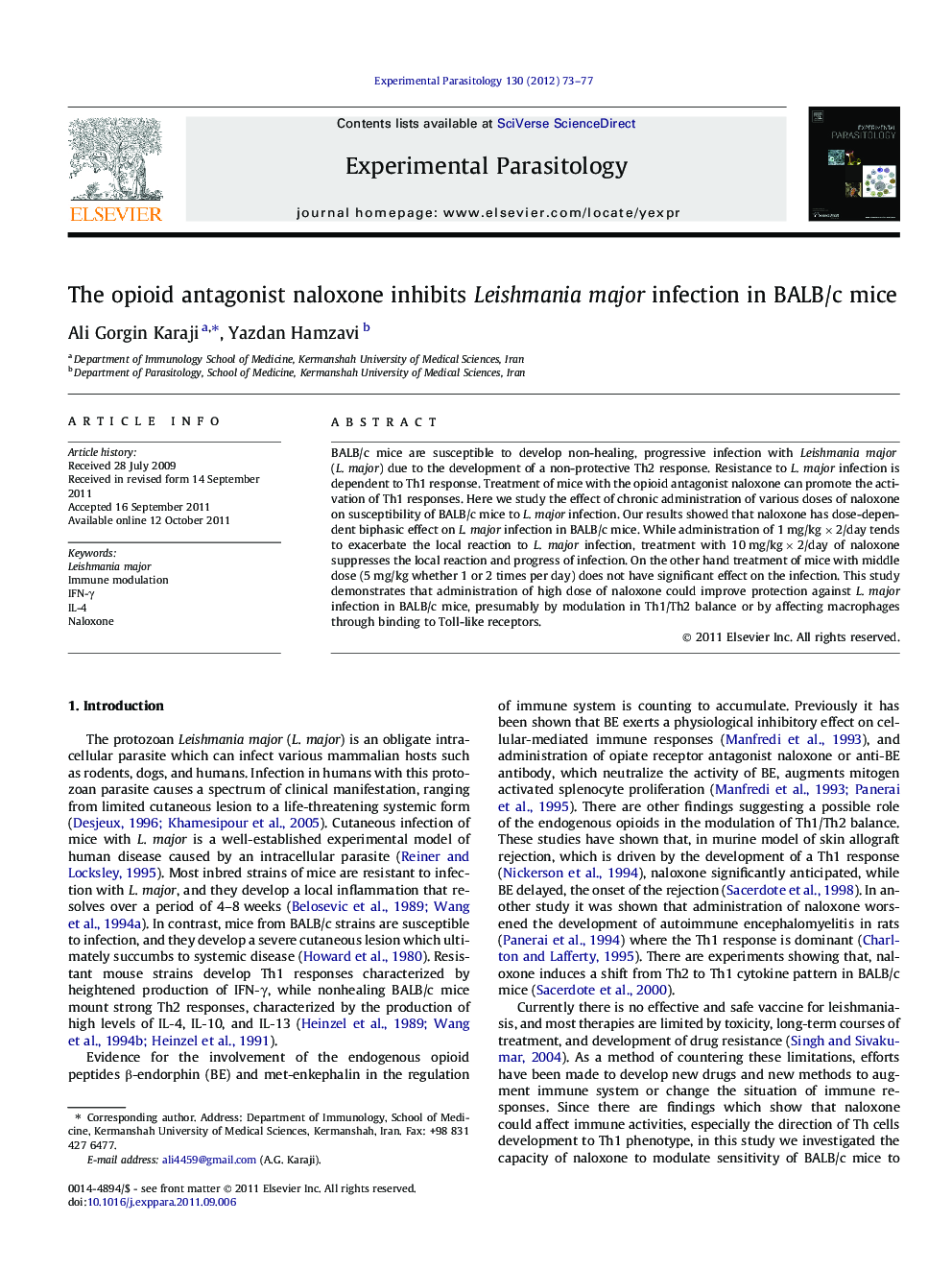| Article ID | Journal | Published Year | Pages | File Type |
|---|---|---|---|---|
| 6291723 | Experimental Parasitology | 2012 | 5 Pages |
BALB/c mice are susceptible to develop non-healing, progressive infection with Leishmania major (L. major) due to the development of a non-protective Th2 response. Resistance to L. major infection is dependent to Th1 response. Treatment of mice with the opioid antagonist naloxone can promote the activation of Th1 responses. Here we study the effect of chronic administration of various doses of naloxone on susceptibility of BALB/c mice to L. major infection. Our results showed that naloxone has dose-dependent biphasic effect on L. major infection in BALB/c mice. While administration of 1 mg/kg Ã 2/day tends to exacerbate the local reaction to L. major infection, treatment with 10 mg/kg Ã 2/day of naloxone suppresses the local reaction and progress of infection. On the other hand treatment of mice with middle dose (5 mg/kg whether 1 or 2 times per day) does not have significant effect on the infection. This study demonstrates that administration of high dose of naloxone could improve protection against L. major infection in BALB/c mice, presumably by modulation in Th1/Th2 balance or by affecting macrophages through binding to Toll-like receptors.
⺠Naloxone affects immune responses. ⺠We examine the effect of chronic administration of naloxone on Leishmania major infection. ⺠Naloxone has dose-dependent biphasic effect on L. major infection in BALB/c mice. ⺠Low dose of naloxone exacerbates the reaction, but high dose inhibits the infection.
